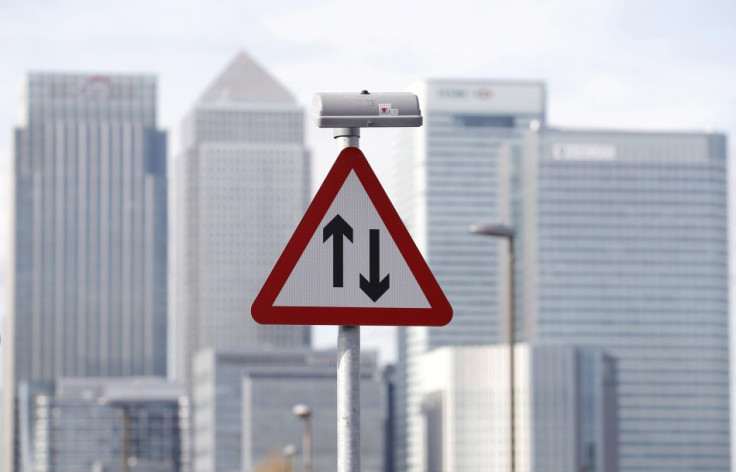If Britain is the 'sick man' of Europe benchmarking standards have really slipped
Many economies are seeing growth at or below that of Britain but the post-Brexit sick man narrative persists as it suits the agenda of some.
Depending on whom you talk to, post-Brexit Britain is either staring at economic armageddon outside of the European Union or heading for a glorious future unshackled from Brussels' red-tape and that comes with it.
In that context, I cannot but help notice the rising clamour from some quarters about the British economy fast becoming the 'sick man' of Europe. The expression harks back to 1976, when Labour Prime Minister James Callaghan went cap-in-hand to the International Monetary Fund (IMF) for a loan of $3.9bn; the largest requested by any member at the time.
Crippled by strikes, lower productivity and a dire business investment climate, Britain did merit the badge of the sick man of Europe in 1976.
However, the way the phrase is being loosely brandished about these days – almost in its entirety by those, including media outlets, who backed remaining in the EU during the 2016 referendum – is nothing short of a farce.
It all erupted again earlier this week, after the IMF 'downgraded' the UK economy saying it would grow by a mere 1.7% in 2017. Fine, that's if you accept the IMF's take as gospel, given its the very same outfit that got its post-Brexit predictions spectacularly wrong, and then had to eat a humble pie.
Perhaps scarred by past experience, in its latest crack at predicting the direction of the British economy, the IMF merely attributed its downgrade to a 'slow start' to the year and warned of challenges ahead, but did not touch on Brexit directly.
However, if that's enough for some to give Britain the tag of being the sick man of Europe, then either they are being economical in the truthfulness of their quip or their benchmarking standards have really slipped.
Britain predicted to grow at 1.7% is the sick man, but the Eurozone at 1.9% led by the Germans at 1.8% is on fire? How about Japan which the IMF forecasts would grow at 1.2% or Italy's spectacular growth at 1.3% or perhaps France's at 1.5%?
In fact, let me not say anything about the Eurozone, but rather leave it to European Central Bank President Mario Draghi who remarked last week that the common currency area is "not yet ready" for a reduction in the unprecedented stimulus it has been providing.
While growth appears to be firming, according to Draghi, prices are not picking up fast enough to get to the ECB's target without help from record low interest rates and continued bond buying. Rather growth in the Eurozone is currently at its weakest pace in six months as manufacturing has cooled.

Given that context, much was made about the IMF's revision to Spain's growth rate, from 2.6% to 3.1%. Commendable most certainly, but from a tepid low base at which the country has languished for years, with a youth unemployment rate average of over 34% for the last 20 years.
Spanish youth unemployment reached an all-time high of 56.10% in April 2013, and is still at over 38%, according to the latest available information. Another narrative gaining traction is how the UK is now rock-bottom of the G7 on the basis of quarterly growth this year.
Now that a lower currency is having a cooling effect, those who stayed silent about last year's 'sterling' growth, are busy depreciating a relatively stable performance and omitting to mention that G7 countries – especially France – are recovering from a low base, while the UK is plateauing in the current climate.
True, but for starters, using the first quarter's data as an entry point, Britain is not alone – the Italians are there too. Every year since 2014, a different G7 country has taken the top spot in the growth rankings, and despite Britain's vote to leave the EU, an expected downturn and negative growth erroneously predicted by many – including the IMF – did not materialise.
In fact, Britain was the second-fastest growing economy in the G7 in 2016, helped by a lower sterling which triggered a growth rate few saw on the horizon.
Now that a lower currency is having a cooling effect, those who stayed silent about last year's 'sterling' growth, are busy depreciating a relatively stable performance and omitting to mention that G7 countries – especially France, like Spain in the Eurozone – are recovering from a low base, while the UK is plateauing in the current climate.
In its latest data release, the Office for National Statistics predicts the UK economy will grow at 1.7% in sync with IMF forecasts, but shy of the Bank of England's projection of 1.9%.
It seems Brexiteers would be content with that, but Remainers who originally pencilled in negative growth for 2017, can't even stomach positive growth of 1.7%. It then begs the question – is Britain really now the sick man of Europe or are those calling it so indulging in an exercise to suit their own narrative.
Gaurav Sharma is the Business Editor of IBTimes UK. He has been a financial journalist for over 15 years, with a core specialisation in macroeconomics and commodities. Follow Gaurav on Twitter.
© Copyright IBTimes 2024. All rights reserved.






